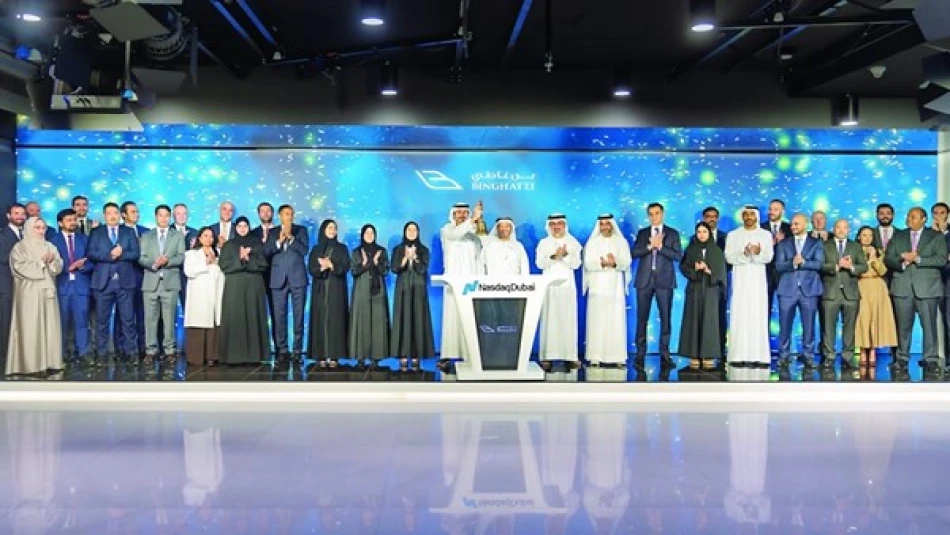
Groundbreaking $500 Million Sukuk Listing by Bin Gahtti on Nasdaq Dubai
Dubai Sukuk Market Hits New High as Bin Ghati Raises $500M in Oversubscribed Islamic Bond
Dubai's position as the global epicenter for Islamic finance strengthened further as real estate developer Bin Ghati Holding successfully listed $500 million in sukuk on Nasdaq Dubai, with investor demand reaching five times the offering size. The oversubscription signals robust appetite for Sharia-compliant investments amid a broader shift toward alternative financing structures in the Middle East.
Record Demand Drives Down Borrowing Costs
The sukuk, maturing in 2030, attracted over $2.5 billion in subscription requests from regional and international investors, allowing Bin Ghati to price the Islamic bonds at 8.125% profit rate—below initial guidance due to overwhelming demand. This pricing advantage demonstrates how strong investor confidence can translate directly into lower financing costs for well-positioned issuers.
The bonds form part of Bin Ghati's broader $1.5 billion sukuk program and are dual-listed on both Nasdaq Dubai and the London Stock Exchange, providing liquidity across multiple time zones and investor bases.
Dubai's Islamic Finance Dominance Expands
This latest listing brings Bin Ghati's total sukuk listings on Nasdaq Dubai to $1 billion, while the exchange's overall Islamic bond listings now stand at $98.6 billion across 108 separate issuances. These figures cement Dubai's status as the world's leading sukuk listing venue, far ahead of competitors in Malaysia, Saudi Arabia, or London.
The success reflects Dubai's strategic positioning as Islamic finance moves mainstream. Unlike conventional bonds that pay interest, sukuk represent ownership stakes in underlying assets, making them compliant with Islamic law's prohibition on interest-based transactions.
Market Implications for Regional Finance
The oversubscription suggests institutional investors are increasingly viewing sukuk as viable alternatives to traditional corporate bonds, particularly as ESG considerations gain prominence. Islamic finance's emphasis on asset-backing and prohibition of speculative investments aligns with growing sustainability mandates among global fund managers.
For real estate developers specifically, sukuk offer an attractive financing avenue as property assets provide natural underlying collateral. This trend could accelerate as Gulf property markets continue their post-pandemic recovery, with Dubai leading regional transaction volumes.
Competitive Positioning Against Global Centers
Dubai's sukuk market dominance positions it advantageously against Singapore's push for Islamic finance and London's efforts to capture Middle Eastern capital. The UAE's regulatory framework, combined with its time zone advantage for Asian and European investors, creates structural benefits that pure financial engineering cannot easily replicate.
The dual listing strategy—covering both Dubai and London—reflects issuers' recognition that accessing the deepest possible investor pool remains crucial for optimal pricing, even as regional markets mature.
Most Viewed News

 Layla Al Mansoori
Layla Al Mansoori






